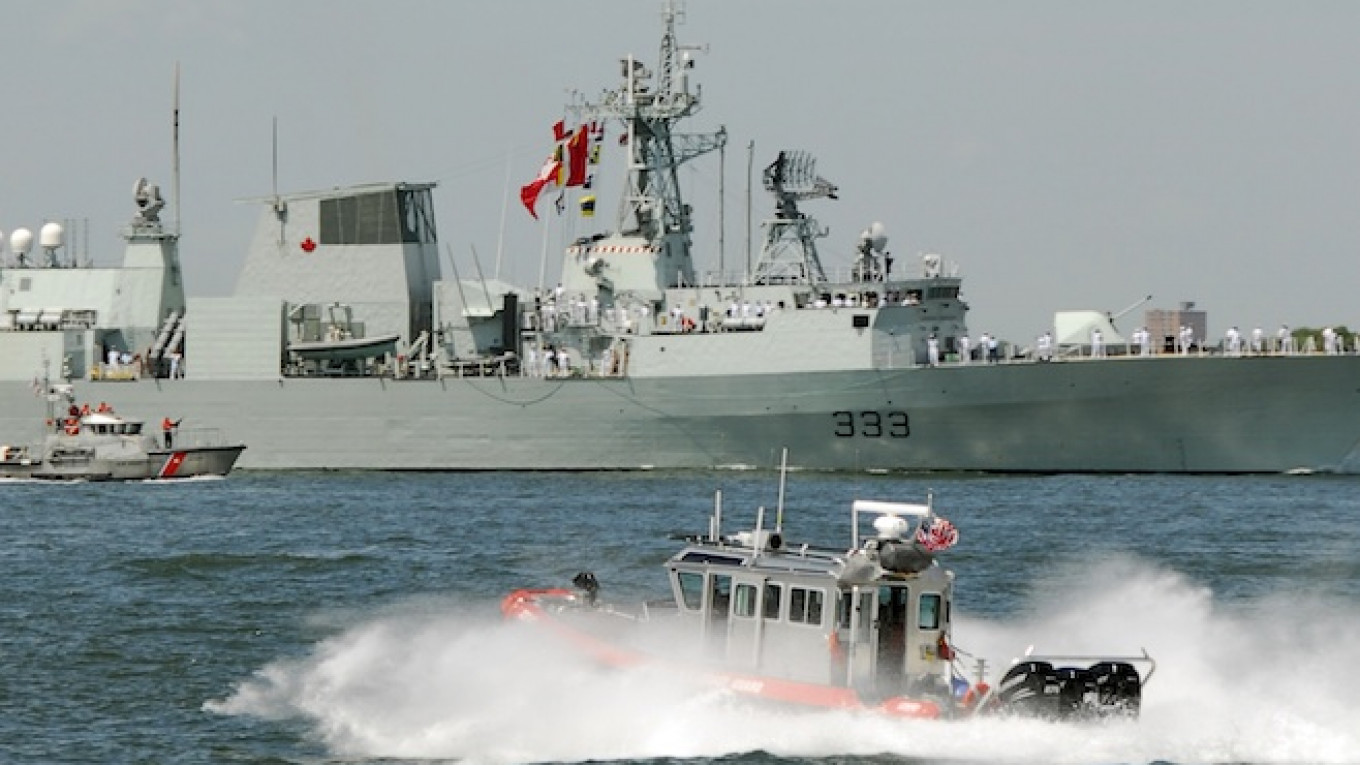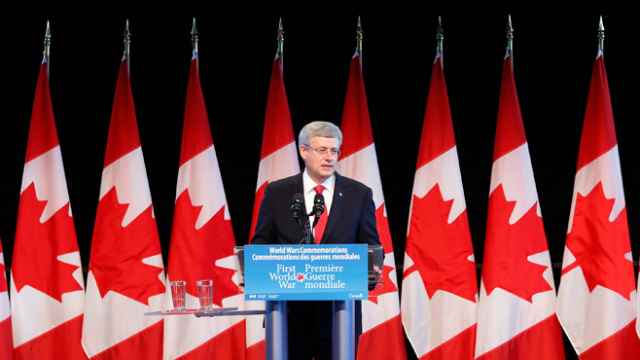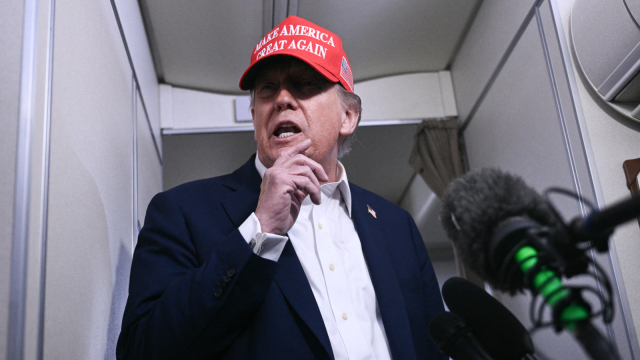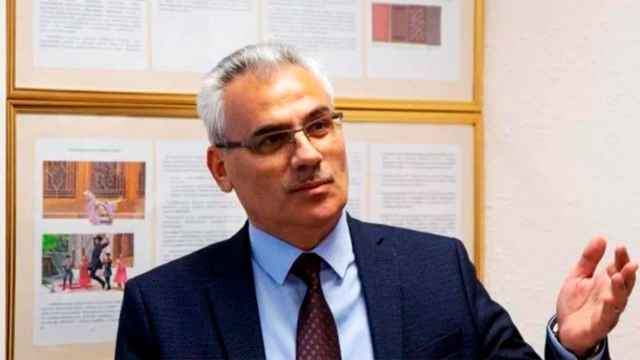Canada's Defense Ministry has accused Russian military aircraft of flying over one of its frigates involved in a NATO mission in the Black Sea, in what it described as an "unnecessarily provocative" maneuver.
"While the Russian military aircraft that circled the HMCS Toronto did not in any way pose a threat to the Canadian ship, their actions were unnecessarily provocative and risk escalating tensions even further," Canadian Defense Minister Rob Nicholson said Monday in an online statement.
A Russian Defense Ministry spokesman confirmed that two Russian aircraft had flown through the area but added that they did so "without making an approach on the foreign military vessel," TASS news agency reported Tuesday.
Tensions between Russia and the West have reached their highest levels since the Cold War in recent months following Moscow's annexation of Crimea in March and its perceived support of pro-Russian separatists in the east of Ukraine.
Western nations, including Canada, have levied several rounds of sanctions against Russian businesses and entities in response to the crisis, though Moscow has repeatedly denied supplying Ukrainian rebels with weapons.
The vessel HMCS Toronto has been deployed to the Black Sea as part of a NATO mission to the region, where it is currently engaged in non-NATO training exercises along with vessels from the U.S., Spain, Georgia, Romania and Turkey and Ukraine.
The drills were planned long before relations with Russia soured over the annexation of Crimea and its perceived intervention in eastern Ukraine, Canada's National Post reported Tuesday.
"Canada will continue to work with our NATO Allies to build military interoperability and partnerships in this part of the world. The message that Canada is sending — along with the rest of our NATO allies — is that Russia's reckless actions must stop," Nicholson said in his statement.
A Message from The Moscow Times:
Dear readers,
We are facing unprecedented challenges. Russia's Prosecutor General's Office has designated The Moscow Times as an "undesirable" organization, criminalizing our work and putting our staff at risk of prosecution. This follows our earlier unjust labeling as a "foreign agent."
These actions are direct attempts to silence independent journalism in Russia. The authorities claim our work "discredits the decisions of the Russian leadership." We see things differently: we strive to provide accurate, unbiased reporting on Russia.
We, the journalists of The Moscow Times, refuse to be silenced. But to continue our work, we need your help.
Your support, no matter how small, makes a world of difference. If you can, please support us monthly starting from just $2. It's quick to set up, and every contribution makes a significant impact.
By supporting The Moscow Times, you're defending open, independent journalism in the face of repression. Thank you for standing with us.
Remind me later.






